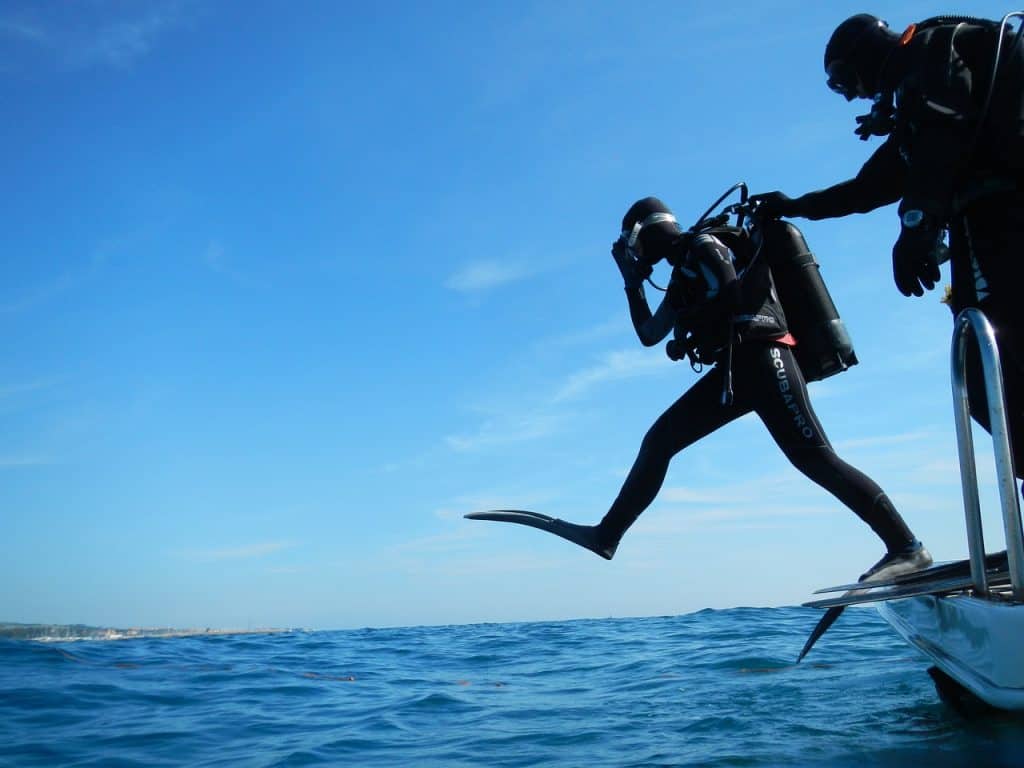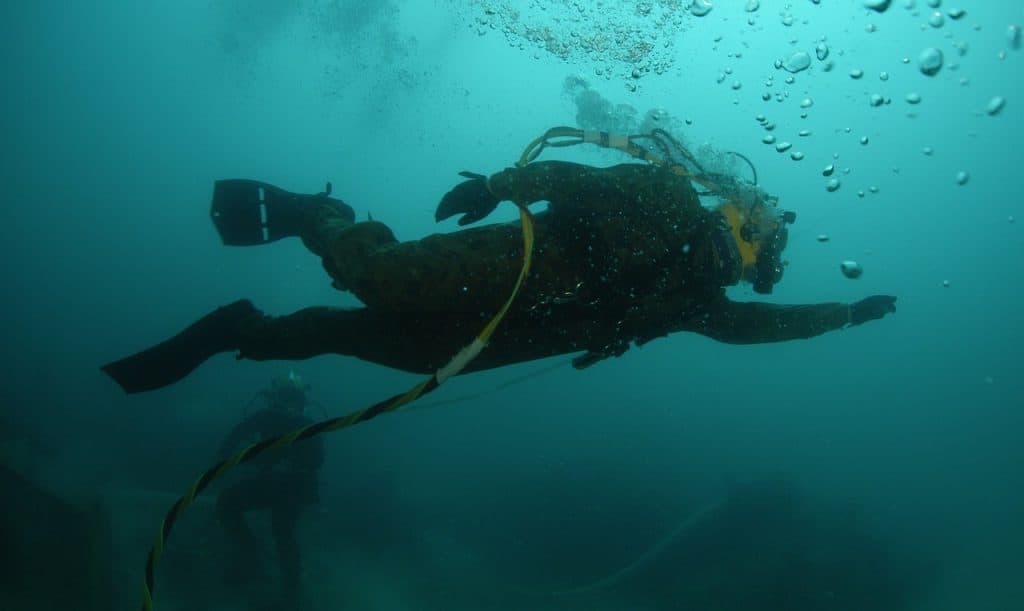
When you’re new to diving, chances are you’re smitten by the beauty of the underwater world. Who wouldn’t? That’s surely what anyone who had the pleasure of descending below the surface would say. The vast ocean holds fascinating treasures from beautiful corals to a myriad of interesting marine creatures of different colors, shapes, and sizes and scuba divers are privy to these underwater gems.
It’s so easy for newbie divers to let their enthusiasm and excitement of exploring the blue get the best of them. Don’t worry, mistakes are part of the learning process. In fact, in scuba diving, many beginners fall for the same errors. Experienced certified divers share the following tips to help prevent typical newbie diving oversights.

Let’s begin with something as basic as buoyancy check. Neglecting to do a buoyancy check and rushing to depth is a frequent newbie oversight which can make a diver either over-weighted or under-weighted while diving. As a result, you could easily drain your energy carrying excess weight; cost you precious air by repeatedly inflating and deflating your BCD underwater to stay at the correct depth; or worse, you could experience an out-of-control ascent. Scary, isn’t it? You can avoid these unpleasant scenarios by being properly weighted before every dive and using only the amount of weight necessary for your overall comfort in the water.
The next one has something to do about overcoming your shyness. Beginners are often timid about asking questions, thinking that the dive instructor might find their inquiries too basic or insignificant. You can avoid this classic blunder by thinking of your dive instructor just like a teacher in a classroom. Remember that a good student listens to the teacher attentively but at the end of the lecture, the pupil raises questions especially when there are confusing parts in the discussion. The same thing applies to diving, if you want to become a good diver, you should not be afraid to ask questions or clarify things about the dive procedure. When you are well-informed, you can execute diving steps more efficiently.
Another common newbie error is trying to juggle too many things at a time. Nowadays, it’s not surprising to see a new diver with an action camera. Perhaps, this has something to do with the social media age, where people just love documenting their activities and sharing them on various social media platforms. As a new diver, you already have a lot on your plate to begin with such as adjusting to your scuba gear, watching air consumption, controlling your buoyancy, and being aware of the environment and other divers. Adding another task such as taking underwater pictures and videos can prevent you from focusing on scuba diving essentials. The distraction can be risky because you can get detached from your group or prevent you from noticing that a current is pushing you down beyond recreational limits. To stay away from situations like these, seasoned divers recommend beginners to complete several dives first to get accustomed to diving and the environment before taking their GoPro for an underwater spin. If you don’t want to miss the opportunity of getting underwater pictures and videos, you can coordinate with your diving center regarding dive packages that offer underwater photographs and/or videos.
Poor buddy communication is also a common mistake of folks who are new to diving. During the Open Water Course, a diver is introduced to the basics of buddy communication such as learning hand signals and keeping a close eye on your dive buddy’s location all throughout the dive. Establishing good communication with your dive buddy is not just an important safety measure when making a descent but it can also save your life. A buddy can come to your aid if you experience equipment failure, have an out-of-air emergency, get trapped in a net or rope, get carried away by the current, or suddenly manifest illness or medical emergencies. Taking moments to review universal diving signals with your buddy prior to a dive and monitoring one another while diving are proactive measures that can help you and your partner stay clear of underwater mishaps.
Diving is like going up the stairs, wherein you take one step at a time to work your way up. It’s possible to skip some steps by walking over them but when you’re in a rush to get to the top, you might miscalculate your footing and fall down the stairs. Ouch! The shortcut is not worth the pain of getting hurt. In terms of diving, some people make the error of going beyond their training limits, especially when they get caught up by the thrill of new sites like dive wrecks or caverns. Exciting as these dive sites may be, your overzealousness can put you and your companions at great risks. There have been reported diving accidents involving inexperienced divers who chose to take on overhead environments which they are unqualified for. Steer clear of underwater mishaps by diving within your limits and getting further training to qualify for more advanced dives.

Another alarming newbie blunder is failing to check your gauges such as your Submersible Pressure Gauge (SPG), Depth Gauge, and Timing Device. A professional diving center trains beginners how to properly monitor their air, check their depth and measure time underwater at all times. Building good dive reference habits can help newbies avoid problems that can lead to serious consequences such as running out of air.
One of the worst errors that a new diver can make is not diving enough. Why, you might ask? In diving, consistent descents can help you improve and strengthen your skills. However, if you take long breaks in between dives, there is a tendency for newcomers like you to forget some diving skills. Don’t worry, if you have a problem recalling them, it might help if you take a refresher course.
Becoming an excellent certified diver takes time, patience, and effort. Although slip-ups can happen to the best of us, most of them can be prevented with the right safety guidelines and precautions. Diving can be twice as fun and exciting when you try your best to avoid these common diving mistakes.
Experiences
Find the perfect escape
© 2024 NEMO DIVING CENTER
Scuba diving is an exciting and adventurous water sport that offers a chance to explore the beauty of the underwater world and its amazing marine life. The UAE, particularly Dubai, is one of the most popular destinations for scuba diving, attracting divers from all over the world. With its crystal clear waters and diverse marine life, scuba diving in Dubai offers a unique and unforgettable experience.
The cost of scuba diving in Dubai varies depending on the dive center you choose and the type of dive you opt for. On average, a single dive can cost anywhere from AED 250 to AED 550, with the average price for a single dive being around AED 350. This price usually includes all the necessary equipment, such as the dive tank, regulator, and wetsuit, as well as the services of a professional dive guide. At Nemo Diving Center, We offer a wide range of diving packages to suit every budget and experience level.
Diving in Dubai is an incredible experience, and the UAE is home to many dive sites teeming with amazing marine life including colorful soft and hard corals, sea turtles, stingrays, manta rays, moray eels, cuttlefish, octopus, nudibranchs, seahorses, and a plethora of fish species. It is also noted for its incredible dive wrecks that have become rich artificial reefs. These dive sites offer a unique and exciting diving experience, providing a chance to explore sunken ships and other structures that have become havens for marine life.
Come and explore the unique underwater world of Palm Jumeriah in Dubai and incredible dive sites in Fujairah such as Dibba Rock, Sharm Rock, Martini Rock, Snoopy Island, and more. At Nemo Diving Center, we offer dive trips to these amazing dive sites, allowing divers to discover the incredible marine life that has made the wreck its home. We also offer a wide range of other dive sites to choose from, including shallow coral reefs, deep wrecks, and drift dives, providing something for every level of diver.
In conclusion, scuba diving in Dubai offers an unforgettable experience for all levels of diver. With its clear waters, diverse marine life, and incredible dive sites, Dubai is a must-visit destination for any scuba diver. Whether you’re a beginner or an experienced diver, our team at Nemo Diving Center will ensure that you have an amazing time exploring the beauty of the underwater world.
Click one of our contacts below to chat on WhatsApp
Social Chat is free, download and try it now here!
